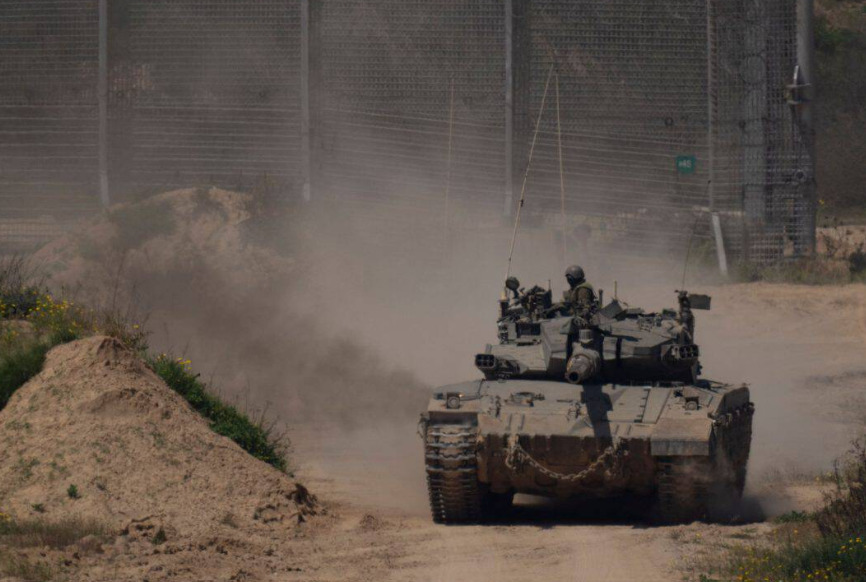
Mike Pence on Leadership and the Future of the Republican Party
Former US Vice President Mike Pence looks back on the events of January 6 2021, his final days in office with President Trump and his…
Thought Leader: Mike Pence

A leading historian has warned that a Third World War could be dangerously close following events in the Middle East.
Leaders of the G7 have moved quickly to de-escalate of tensions after Iran’s unprecedented attack on Israel, warning that an “uncontrollable regional escalation” must be prevented.
In a joint statement following an urgent call on Sunday, countries including the UK and US said they “stand ready to take further measures now and in response to further destabilising initiatives”.
Prime Minister Rishi Sunak earlier confirmed that British RAF jets shot down a number of Iranian drones after the country announced it had launched retaliatory action against its long-standing enemy.
The statement released shortly after the talks on Sunday afternoon said: “We, the leaders of the G7, unequivocally condemn in the strongest terms Iran’s direct and unprecedented attack against Israel.”
It expressed “full solidarity” with Israel and said Tehran had “further stepped toward the destabilisation of the region and risks provoking an uncontrollable regional escalation” which “must be avoided”.
The leaders of the Group of Seven advanced economies also referred to Gaza, where an Israeli offensive, sparked by Hamas’s October 7 attack that claimed the lives of 1,200 people, has caused widespread devastation and killed more than 33,000 Palestinians.
“We will also strengthen our co-operation to end the crisis in Gaza, including by continuing to work towards an immediate and sustainable ceasefire and the release of hostages by Hamas, and deliver increased humanitarian assistance to Palestinians in need,” their statement said.
Israel said Iran launched 170 drones, more than 30 cruise missiles and at least 120 ballistic missiles in an assault that set off air raid sirens across the country.
By Sunday morning Tehran said the attack was over and Israel reopened its air space having said it had intercepted along with its allies 99% of the projectiles launched towards its territory.
The assault came in response to a strike widely blamed on Israel on an Iranian consular building in Syria earlier this month, which killed two Iranian generals.
It is the first direct military attack launched by Tehran on Israel despite enmity dating back to the 1979 Islamic Revolution.
The latest development brought years of shadow war between the two foes out into the open as the conflict in Gaza inflames decades-old tensions in the Middle East.
Speaking to journalists in Downing Street on Sunday morning, the PM described the strikes as “dangerous and unnecessary”, warning that the fallout in regional stability would have been “hard to overstate” if they had been successful.
Coupled with threats elsewhere, it is clear that the world now stands at a precipice.
There is a ground war in Europe; China threatens Taiwan; and now Israel is under attack.
It is for this reason that the historian Niall Ferguson has warned that we are a few geopolitical inches from a Third World War.
His point is that the Second World War can be seen as an accumulation of conflicts in different regions that happened to occur simultaneously — and that we are now on the verge of the same pattern.
Mike Pence on Leadership and the Future of the Republican Party
Former US Vice President Mike Pence looks back on the events of January 6 2021, his final days in office with President Trump and his…
Thought Leader: Mike Pence
Marc Short on U.S. Investment in Critical Minerals
Why do critical minerals matter now? Marc Short explains how U.S. investment in critical minerals fits into a broader strategy around economic security, manufacturing, and…
Thought Leader: Marc Short
Marc Short on AI Policy and the Government’s Role in Chip Technology Investment
On CNBC, Marc Short breaks down the role of AI policy and how government investment is shaping the future of chip technology. A former Chief…
Thought Leader: Marc Short

